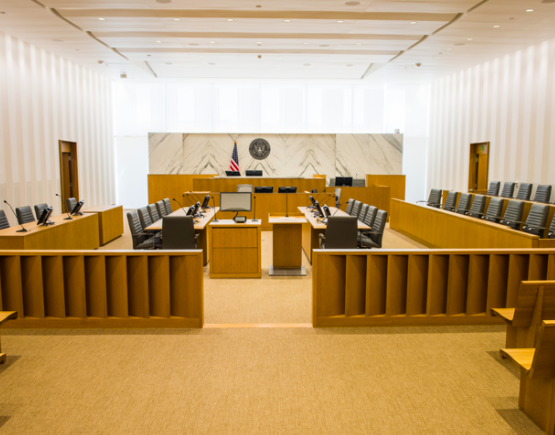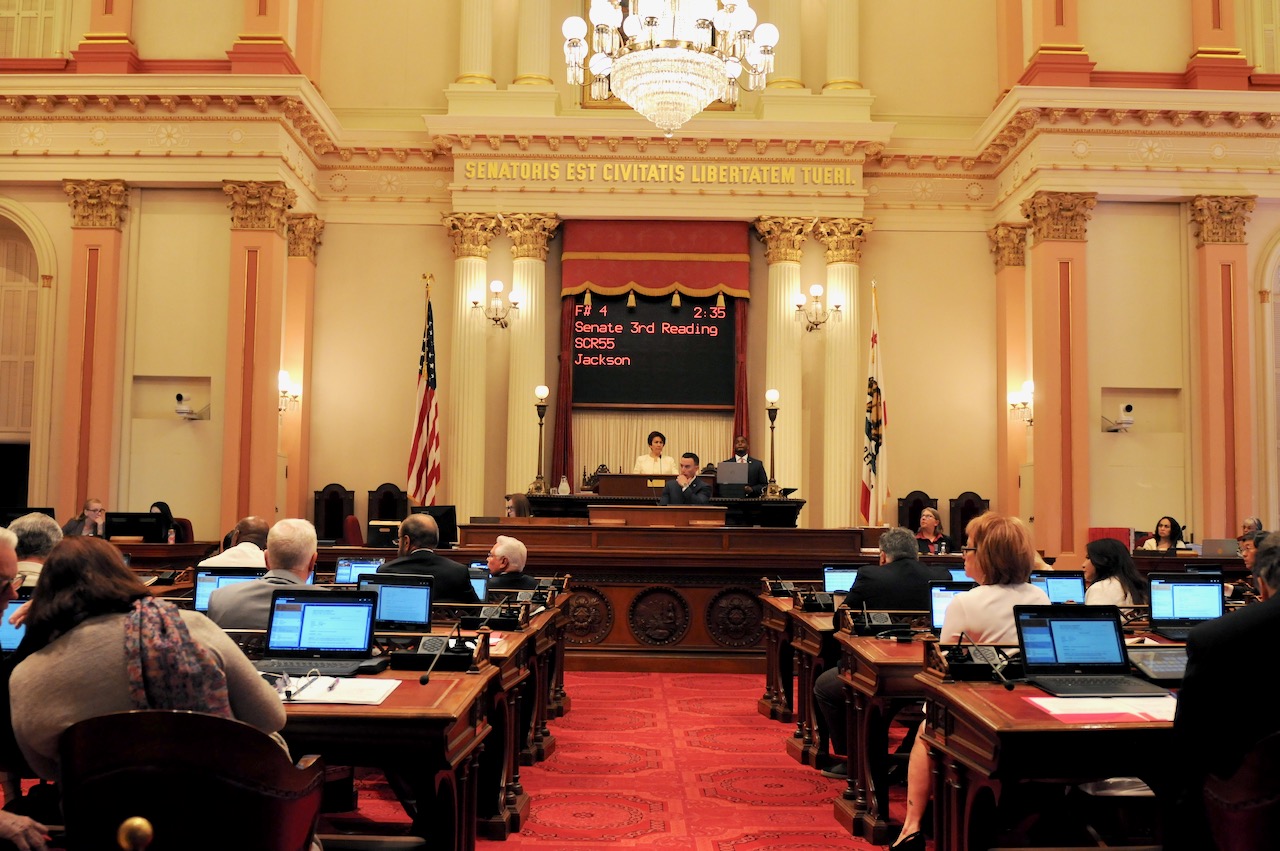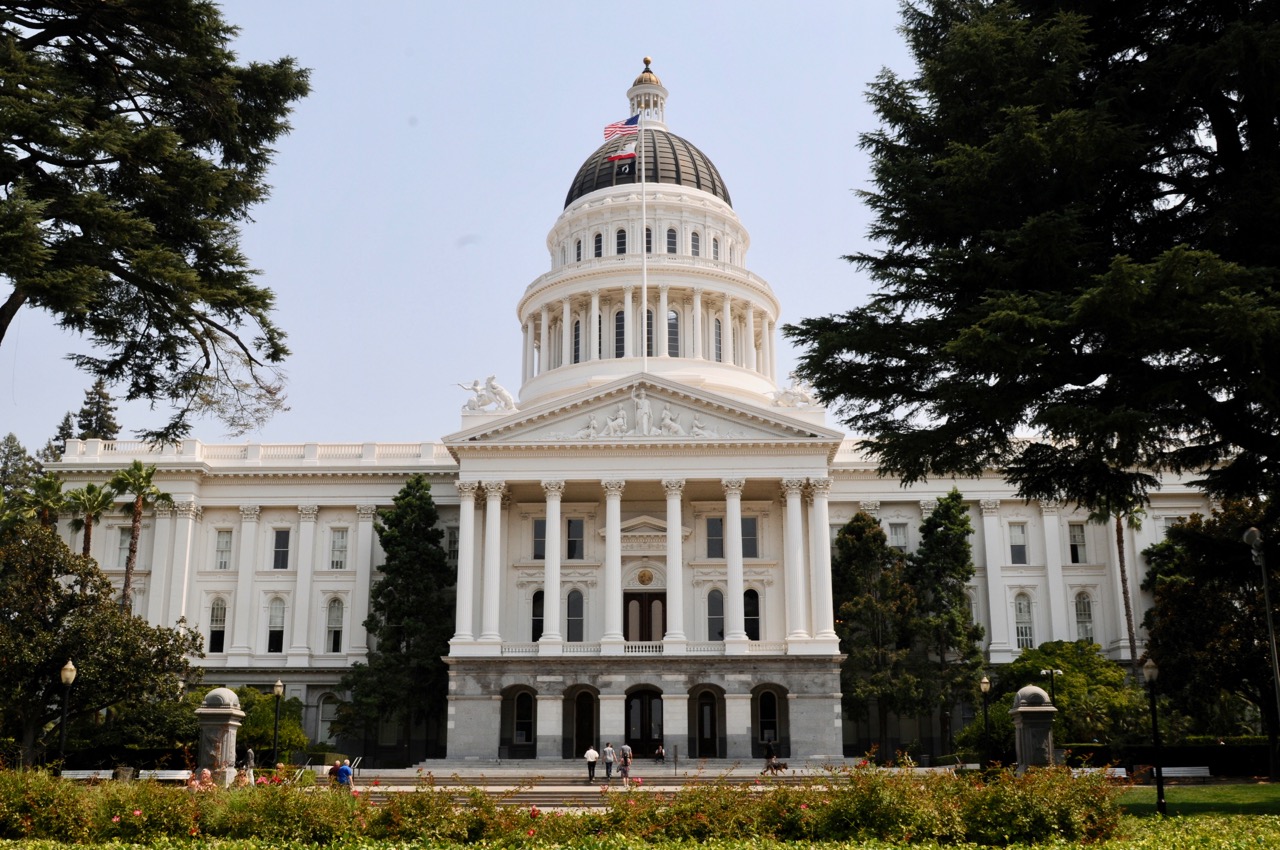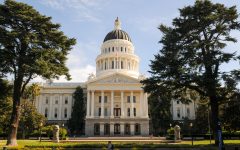
Central District of California in Los Angeles courtroom. (Photo: uscourts.gov)
California Courts and Special or Extraordinary Sessions
‘In deciding whether the Legislature acted outside the scope of the Governor’s proclamation, we owe substantial deference to the Legislature’
By Chris Micheli, January 8, 2025 2:30 am
The Governor of California has the authority to call a special or extraordinary session of the Legislature pursuant to the state Constitution. Article IV, Section 3(b) provides: “On extraordinary occasions the Governor by proclamation may cause the Legislature to assemble in special session. When so assembled it has power to legislate only on subjects specified in the proclamation but may provide for expenses and other matters incidental to the session.” How have California appellate courts viewed this constitutional language? There are several reported decisions of interest.
“In deciding whether the Legislature acted outside the scope of the Governor’s proclamation, we owe substantial deference to the Legislature. It is not enough that we would come to another conclusion ourselves. Under Martin v. Riley (1942) 20 Cal.2d 28), which is binding Supreme Court precedent, we may overrule the Legislature and invalidate legislation they have enacted during a special session only if the Legislature was unreasonable to conclude the legislation fell within the scope of the Governor’s grant of authority. (Id. at pp. 39-40)
“The duty of the Legislature in special session to confine itself to the subject matter of the call is of course mandatory. It has no power to legislate on any subject not specified in the proclamation. [Citations.] But when the governor has submitted a subject to the Legislature, the designation of that subject opens for legislative consideration matters relating to, germane to and having a natural connection with the subject proper.” (Martin, supra, 20 Cal.2d at p. 39)
“The same presumptions in favor of the constitutionality of an act passed at a regular session apply to acts passed at a special session … [W]hen the Legislature acting under a special call, undertakes ‘to consider subjects and pass laws in response thereto, and such laws receive the approval of the executive, courts are and should of right be reluctant to hold that such action is not embraced in such call, and will not so declare unless the subject manifestly and clearly is not embraced therein.’ [¶] Inasmuch as the presumptions are in favor of the constitutionality of the act, it will be held to be constitutional if by any reasonable construction of the language of the proclamation it can be said that the subject of [the] legislation is embraced therein.” (Martin, 20 Cal.2d at pp. 39-40, italics added.)
Sturgeon v. County of Los Angeles, 191 Cal.App.4th 344 (2010)
Legislation enacted during a special session that was called to address the economy and streamline operations of state and local governments, a bill requiring counties to continue paying employment benefits to sitting judges did not violate the section of the state constitution prohibiting enactment of legislation outside the scope of the special session; this legislation dealt with the operations of superior courts and their relationship with the county governments where they were located.
Article IV, section 3(b) of the California Constitution states in pertinent part: “On extraordinary occasions the Governor by proclamation may cause the Legislature to assemble in special session. When so assembled it has the power to legislate only on subjects specified in the proclamation….” In Martin v. Riley (1942) 20 Cal.2d 28, 38–41, the court considered the nature of this limitation on legislative power during a special session. Martin v. Riley arose when, as a result of the attack on Pearl Harbor, the United States entered World War II and the Governor promptly called a special session of the Legislature to, among other matters “ ‘consider and act upon legislation augmenting the appropriation for the operation, maintenance and organization of the State Guard … and amending sections 321, 340, 395, and 555 of the Military and Veterans Code, with respect to the pay, privileges, allowances, and right for the State Guard.’ ” (Id. at p. 38)
During the special session, the Legislature passed and the Governor signed legislation which, in addition to the specific matters set forth in the Governor’s proclamation, accomplished a major reorganization of the State Guard and gave the Governor the power to call guard members into active service. (Id. at p. 31)
“The legislation Sturgeon challenges, as enacted, implemented an interim response to the constitutional issues we addressed in Sturgeon I. As we shall explain, the legislation fell within the scope of the Governor’s proclamation, adequately prescribed the benefits that must be provided to judges, and did not intrude upon any judge’s right to equal protection of the laws. Accordingly, we affirm.”
In broadly interpreting the Legislature’s powers during a special session, the court relied on a Texas case interpreting a similar constitutional provision. In that case, Baldwin v. State (1886) 21 Tex. App. 591, 3 S.W. 109, although the Governor called the Legislature into session to reduce both ad valorem and occupation taxes, a bill which imposed taxes on occupations not previously taxed, was approved. In finding that the new taxes were within the call, the court found:
‘To so legislate as to reduce the taxes, and at the same time provide for the support of an efficient state government, in our opinion, includes the power to levy taxes upon property and occupations not taxed before. It might be wholly impracticable to accomplish a reduction of taxes and at the same time to maintain the state government, without the exercise of such power…. Legislative power, except where the constitution has imposed limits upon it, is practically absolute; and where limitations upon it are imposed they are to be strictly construed, and are not to be given effect as against the general power of the legislature, unless such limitations clearly inhibit the act in question.’” (Id. at p. 39)
Thus, in Martin v. Riley the court found that “when the Legislature acting under a special call, undertakes ‘to consider subjects and pass laws in response thereto, and such laws receive the approval of the executive, courts are and should of right be reluctant to hold such action is not embraced in such call, and will not so declare unless the subject manifestly and clearly is not embraced therein.’” (Id. at pp. 39–40)
Here, as we have noted, the Governor called a special session to, among other matters, address the economy and “streamline the operations of state and local governments.” Thus, under Martin v. Riley the Governor’s call opened up the subject of the operations of state and local governments. (Martin v. Riley, supra, 20 Cal.2d at pp. 40–41)
Whether the legislation in fact streamlined those operations is not of concern to us: the Governor’s proclamation gave the Legislature the power to legislate in the area of state and local government operations. (Ibid.) Our opinion in Sturgeon I plainly disturbed the existing relationship between the county and the judges sitting in the county’s superior courts and by it terms required legislative action if the disputed benefits were to continue.
In responding to our opinion, the Legislature plainly dealt with the operations of both state and local government by requiring that local governments continue to provide judges with the benefits pending the report of the Judicial Council with respect to statewide inequity in the payment of those benefits. The legislation, because it manifestly dealt with the operations of superior courts, their relationship with the county governments where they are located and the Legislature’s duty to prescribe judicial compensation, was squarely within the area of state and local government operations and hence within the scope of the Governor’s proclamation.
People ex rel. Becerra v. Superior Court, 29 Cal.App.5th 486 (2018)
Plaintiffs failed to demonstrate that they have standing to challenge the End of Life Option Act (EOLOA) Just because something is not expressly allowed in a statute does not mean it is forbidden. In the action below, the trial court entered judgment on the pleadings, enjoining enforcement of the Act on the ground that it was not within the scope of the proclamation calling the special session, and therefore it was in violation of article IV, section 3, subdivision (b) of the California Constitution. We will hold that the challengers have not shown that they have standing. Hence, we do not reach the constitutional question.
As the reader can see, California courts provide a fair amount of deference to the Legislature in the bills that they consider and enact during a special session. Essentially, the court have ruled that the Legislature will have only violated the constitutional limitation on the subject matter of special session legislation if they act unreasonably. Otherwise, the Legislature is left to determine whether the legislation fell within the scope of the Governor’s proclamation (i.e., the subject matter of the special session).
- Endangered Species Regulation - February 19, 2026
- Renewal of Judgments - February 18, 2026
- Hearings on Third-party Claims - February 18, 2026




